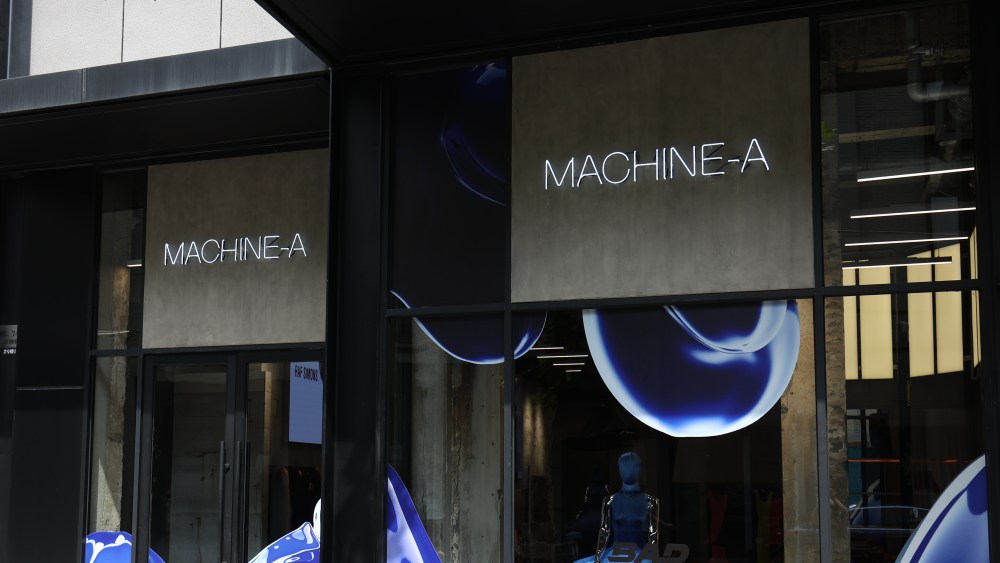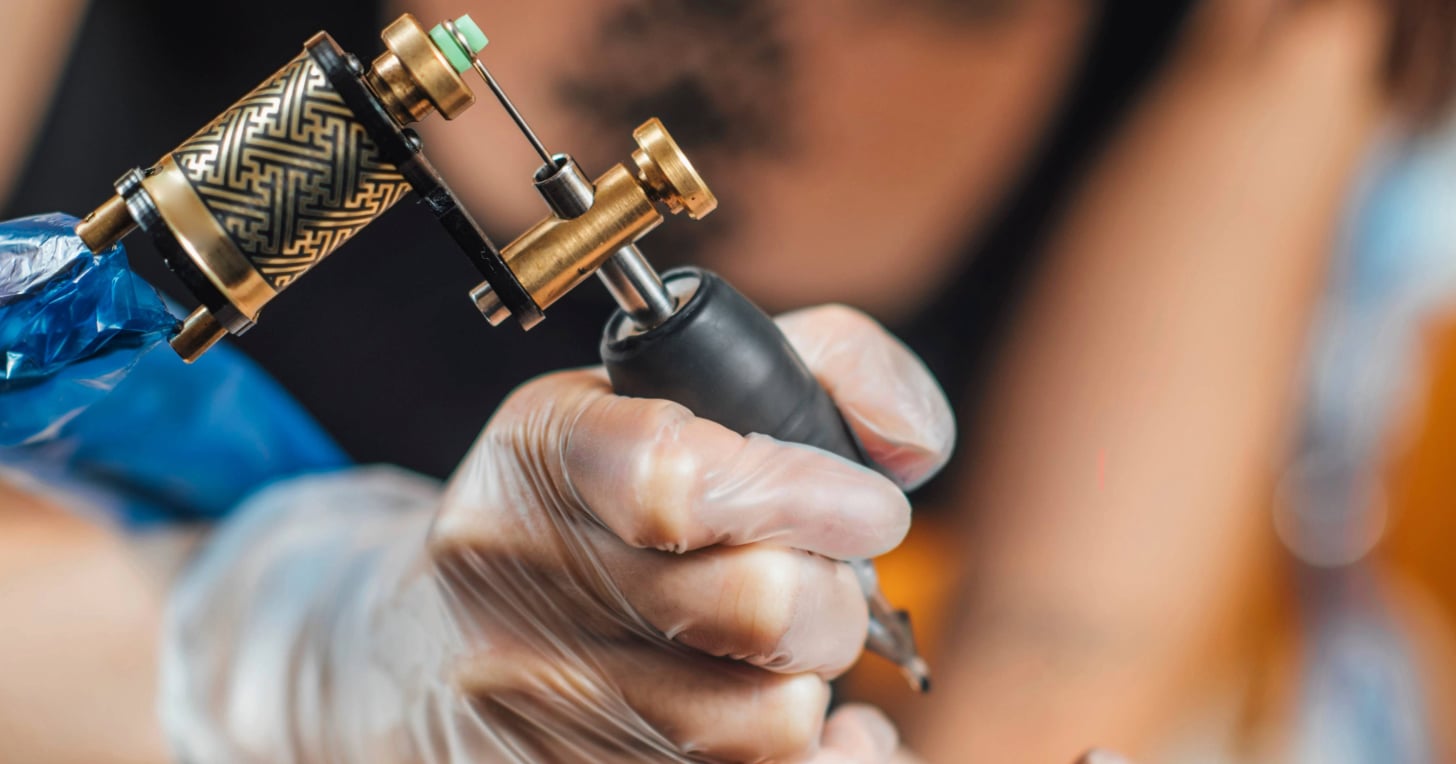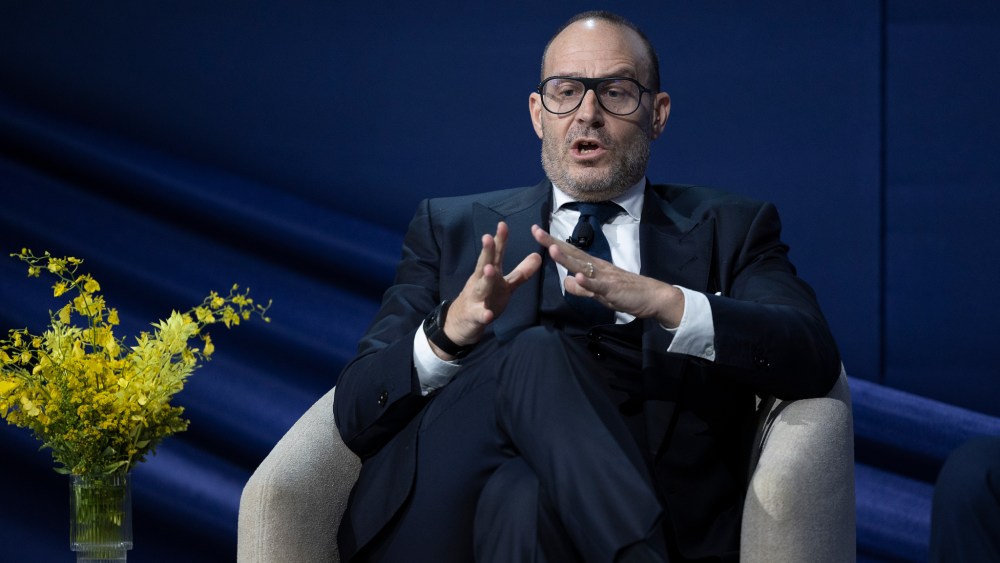LONDON — British multibrand fashion retailer Machine-A is reviewing its China strategy after entering the market two years ago by opening a 2,640-square-foot store in Shanghai.
Following a prolonged period of in-store discount sales — which saw items from brands including Mugler, Yueqi Qi, Ottolinger and Charles Jeffrey Loverboy being marked down by as much as 95 percent off — the store at 66 Yuyao Road in Jing’an District was closed on Sunday.
Stavros Karelis, founder and buying director of Machine-A, said the retailer has decided not to renew the lease in that space due to a challenging retail climate, which is also impacting major luxury players such as Kering, Burberry and Ferragamo.
“We are re-evaluating the ways of being present in Shanghai as a brand that makes more sense to us and the direction we are taking,” said Karelis.
You May Also Like
The decision to expand Machine-A into China was made at a time when it was the only market that was performing well in luxury retail during the COVID-19 pandemic.
However, infected cases began to shoot up in Shanghai around March 2022, leading the city into a months-long strict lockdown and dampening the mood for fashion consumption. There then was a depletion of consumers’ disposable income over the last few years due to the country’s tough economic outlook. As a result, Machine-A Shanghai was not able to ride China’s concept store boom, during which a cohort of players such as Labelhood, Dongliang, SND and ENG expanded nationwide, forming sizable retail networks.
“We opened in a very complicated time for the global market during COVID-19, but I am hugely proud of the work we managed to achieve there even with all the challenges,” said Karelis.
“The experience [in China] has been an extraordinary one and I am so grateful to have been able to achieve this, which was so important to us as an appreciation to an audience that has hugely supported Machine-A from early times,” he added.
The lack of synergy in the current location could be seen by local shoppers as a major hurdle.
Despite being in downtown Shanghai, Machina-A Shanghai essentially sat in a neighborhood-focused shopping area not walkable from other popular fashion destinations. Fashion lovers would have to make a special trip if they wanted to shop there.
In an earlier interview, Karelis said he was confident that Machine-A “can still offer something that is going to be different from what exists there,” despite global players historically not being able to perform well in China.
For example, 10 Corso Como shut its seven-year-old, 27,000-square-foot Shanghai store in 2019 due to stiff competition and poor management, while Maria Luisa’s China expansion ambition in partnership with Hong Kong-based Mazly Fashion Group derailed after the retailer passed away in 2015.
Meanwhile, Fengmao, the China joint venture between Alibaba and Yoox Net-a-porter, last month revealed that it will be terminated by next year as YNAP plans to exit China in order to focus investments and resources on core and more profitable geographies.
But Karelis assured that the Shanghai store closure is not the end of Machine-A in China.
“We still have our WeChat channels active for sales and, of course, we can fulfill any requests through the London store until we identify the right presence for us,” said Karelis.
He touted that over the years, Machine-A has evolved from a pure multibrand retail experience to “a cultural purpose space that focuses on local and international talents and merging art, fashion and design.”
“I think that the best lesson learned is that the young audience that Machine-A has is interested in a new way of engagement, a new way of experience that is much more culturally relevant, a much more interactive one, and is not only focusing on fashion in its pure sense, whether that’s a designer or a product but also what this represents and stands for,” he said.
“It is not just about shopping but is a much more meaningful connection and engagement. When we did the Mugler event with CL in Shanghai, for example, it was so incredible to see that connection present and it wasn’t about a product or sales. Same with our Reebok collaboration and celebrating the LGBTQIA+ community. This is what I think we are going to explore deeper in China but with respect to the DNA of Machine-A,” added Karelis.
A curated experience, with or without a shopping element, offered by a global retailer has been proven to hold certain values in the eyes of some local shoppers.
To wit, Harrods last year turned The Residence, an invitation-only personal shopping concept that was first introduced in Shanghai during the COVID-19 pandemic, into its first-ever private members’ club, offering memberships that start from 150,000 renminbi, or $21,015, a year with a members-only restaurant helmed by Gordon Ramsay, and VIP treatments whenever they come shop in London.


